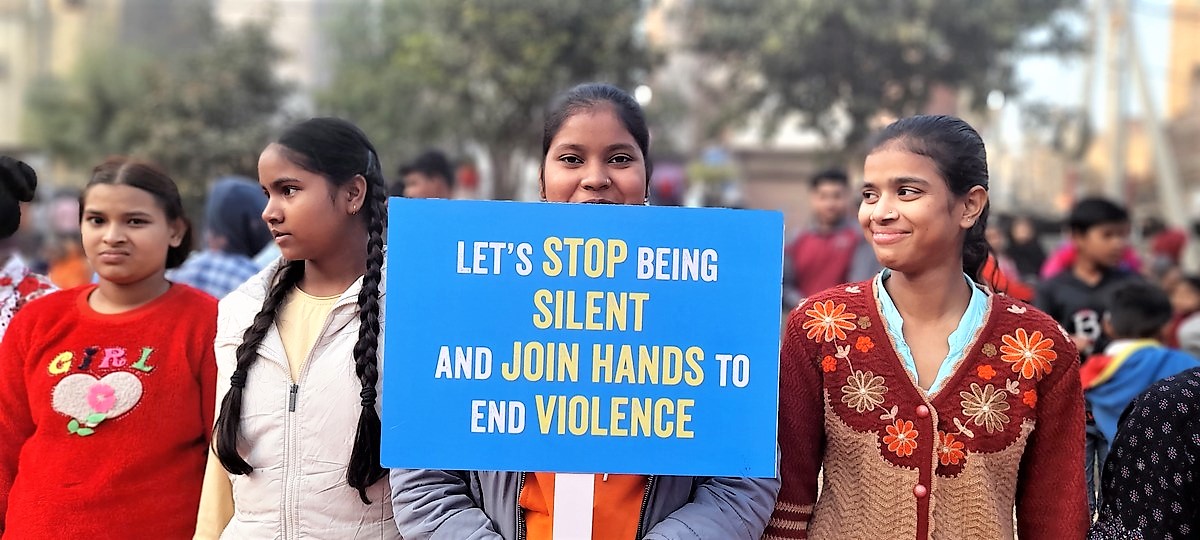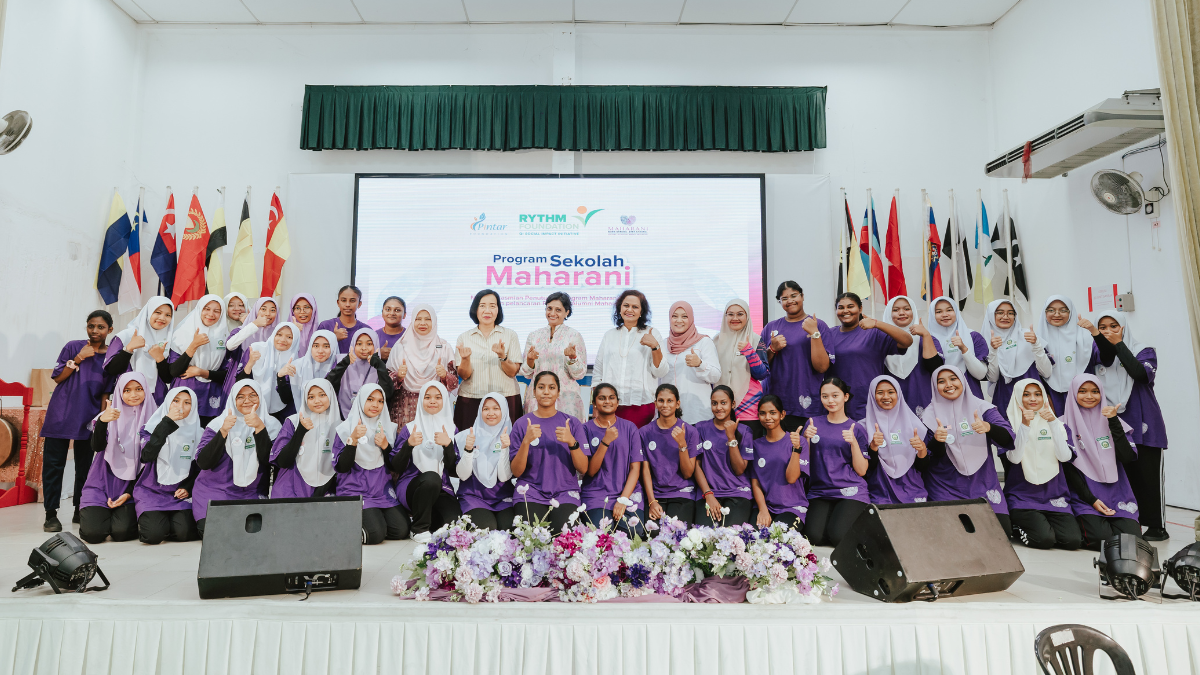The safety of girls and women in India remains a significant concern, with gender-based violence and harassment a dreadful constant in the country. They remain vulnerable to threats to their security and well-being despite the efforts of the government and civil society organisations to address the issues.
Last year, the National Commission for Women received nearly 31,000 complaints of crimes against women, the highest since 2014. In 2021, about 430,000 reports were lodged, a jump of 87% from approximately 230,000 cases a decade earlier (National Crime Records Bureau).
Recognising the importance of addressing girls’ safety in urban settings, RYTHM Foundation has partnered with Plan India to launch the ‘Safer Cities for Girls’ project. Through this programme, girls and young women will have access to designated safe spaces where they can freely move without fear of harassment or violence.
The project will also empower the beneficiaries with a platform to address safety issues and teach them self-defence and assertiveness skills to respond confidently and effectively to violence against them.
RYTHM’s inaugural collaboration with Plan India is focused on Gautampuri, a resettlement colony in South Delhi with a populace of 38,000 people, including a youth demographic of 3,000 children and young adults aged between 10 and 25.
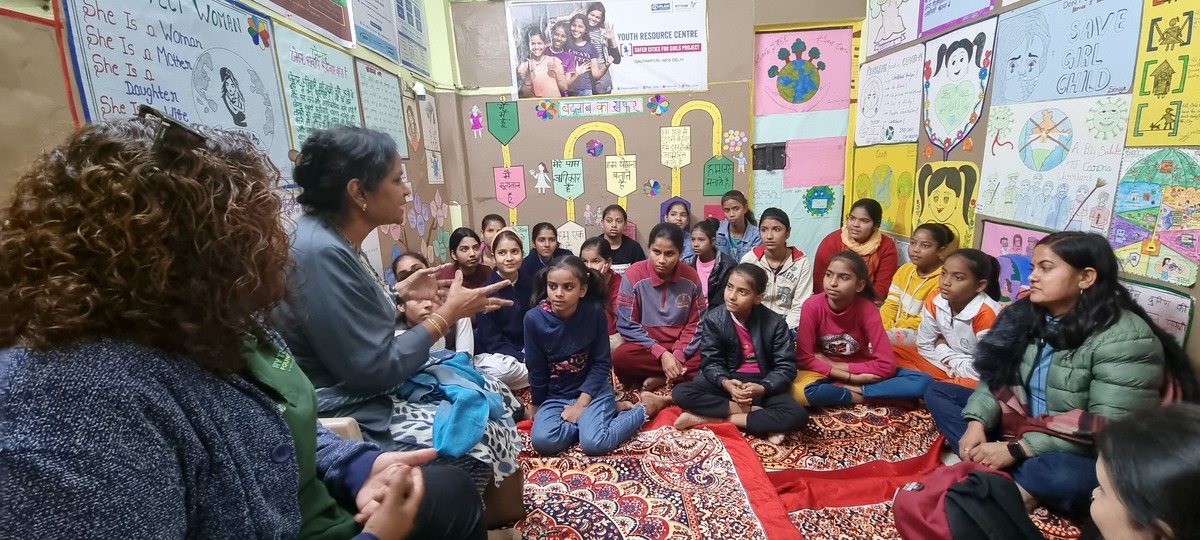
The lack of jobs with decent living wages has contributed significantly to social problems and poverty in the locality of some 7,400 households. Most of Gautampuri’s adult population works as house helpers, factory workers, rickshaw pullers, or vegetable sellers.
The prevalence of violence and sexual harassment notwithstanding, the rising incidence of child marriages and school dropouts in the area has also become a significant cause of concern. These were exacerbated by a sharp increase in unemployment during the COVID-19 pandemic.
Several activities are in place to achieve the objectives of Safer Cities for Girls. From self-defence classes for girls to awareness campaigns for boys, the project also engages with adults, leaders, and authorities to prevent harassment and violence and challenge discriminatory gender norms.
The 36-month initiative aims to impact at least 12,000 people, primarily adolescents aged between 13 and 18, their families, and government officials. It is also actively recruiting “Champions of Change” among Gautampuri’s youth to lead the awareness and safety programmes.
On a broader scale, Safer Cities for Girls works to influence policymakers to make laws and city services more receptive and inclusive to girls’ safety. In addition, it hopes to create a supportive social environment that supports this inclusion.
From Boys to Men
During a recent visit to Gautampuri, Santhi Periasamy, the Head of RYTHM, was pleasantly surprised by the remarkable progress made by Safer Cities for Girls. She was also particularly impressed by the active involvement of many male participants in the programme.
“Initially, I presumed them to be token participants. However, the boys I met exuded boundless energy and enthusiasm for the project,” she said.
“The prevalence of harassment and sexual assault experienced by girls and young women in the area is of grave concern. However, the boys’ pledge to protect the girls and ensure the community is rid of the social issues was reassuring.”
Certain aspects of the programme have been designed to target male audiences through comprehensive awareness campaigns and interactive workshops.
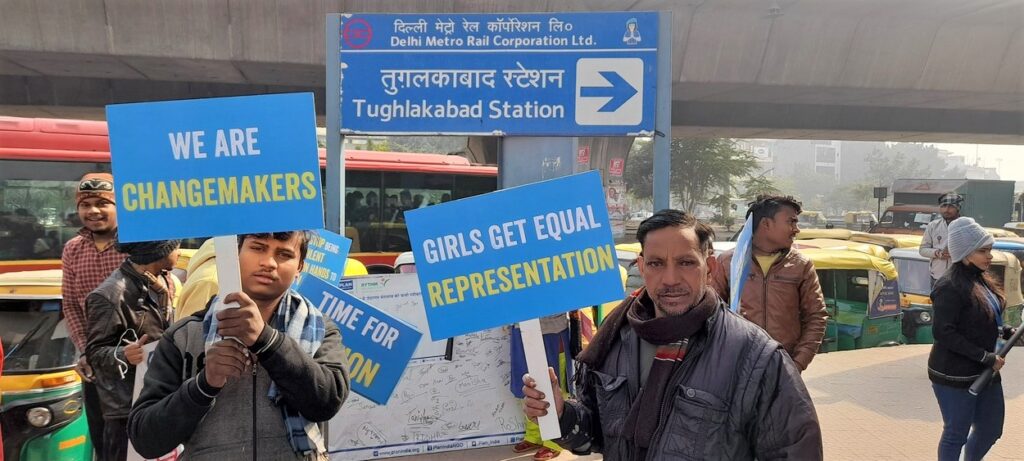
These programmes seek to educate them about the significance of gender equality, promote the importance of respecting girls and women, and empower them to take an active stance in preventing incidents of violence and harassment.
Santhi emphasised the programme’s potential to bring about positive change by nurturing a profound comprehension of critical issues and arming male participants with the tools necessary to become influential allies.
“By doing so, the programme has a better chance of creating a safer and more equitable environment for all beneficiaries.
“Such an outcome would undoubtedly mark a significant milestone in achieving gender equality and eliminating violence and discrimination against women – for a start, at least in Gautampuri.”
A Safer and Brighter Future for Girls
Safer Cities for Girls has been warmly received by Gautampuri’s communities, with many residents expressing gratitude for the initiative.
Nilam, a 22-year resident of the colony, said, “This programme teaches our children many good things. My son tells me a lot about whatever he learns. I am happy that this platform is teaching him to be a responsible person.”
Anuradha, whose daughter is part of the programme, said, “Many girls are not allowed to progress in life and face many risks. However, my daughter can now look forward to a bright future without threats to her well-being.”
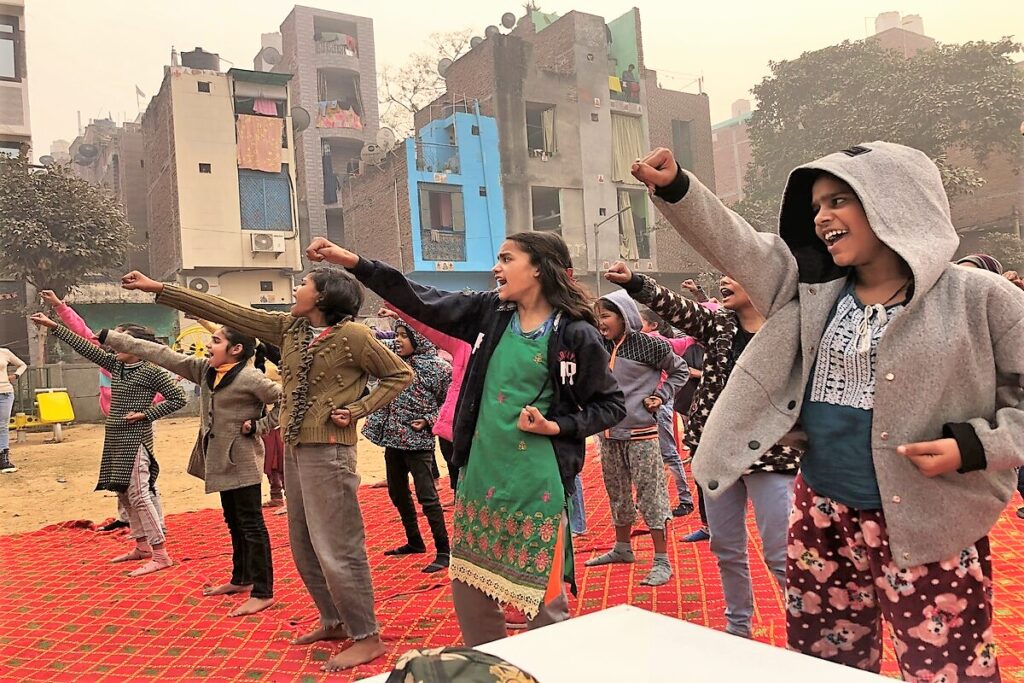
The self-defence classes are especially popular among girls. Teen participant Niranjana shared her newfound confidence. “The classes have taught me a lot in just a few days. I am sure I can defend myself if needed,” she said confidently.
Shakti, a constable serving in the Delhi Police force, has taken on the role of a self-defence instructor within the programme. She strives to provide girls with the necessary skills to safeguard themselves and cultivate a sense of empowerment.
She encapsulates Safer Cities for Girls’ ideals succinctly. “I am thankful for this opportunity to contribute to the safety of Gautampuri’s girls. Educating and empowering them with essential skills and knowledge is critical in preparing them for a safer and more secure future.”

